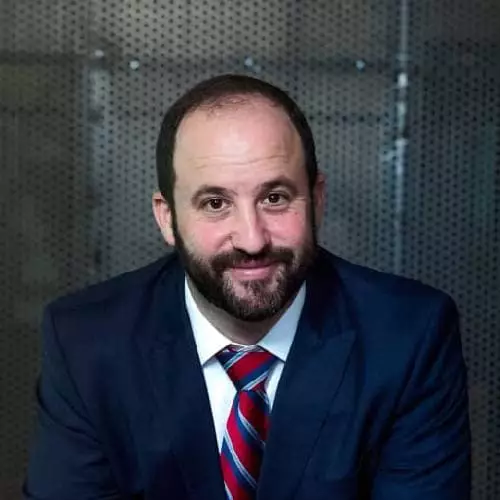
Unlawful harassment occurs when an employer treats a person or group differently from others who are similarly situated.
If you work for the federal government and believe that you have experienced unlawful workplace harassment, there is a specific procedure you must follow to get relief.
Today, we’ll cover the basics of federal harassment laws, including what qualifies as harassment under these laws and the options available for federal employees to address it.
If you believe you have experienced unlawful harassment in your federal workplace, you may be available in your situation.
Contact an experienced federal employment lawyer by sending an online message or calling our firm at (866) 626-5325 today.
What Is Unlawful Harassment?
Workplace harassment becomes unlawful when employees must endure it to keep their job or when it creates a hostile, intimidating, or abusive environment.
Workplace harassment, defined as unlawful behavior that creates a hostile work environment, is a form of employment discrimination and violates several federal acts that protect employees’ rights. These include:
- Age Discrimination in Employment Act of 1967 (ADEA);
- Title VII of the Civil Rights Act of 1964; and
- Americans with Disabilities Act of 1990 (ADA).
This conduct could be based on race, color, sexual orientation, gender identity, pregnancy, religion, national origin, age, genetic information, or disability.
Types of Unlawful Workplace Harassment Conduct
Unlawful harassment can include verbal, written, visual, or physical conduct.
Verbal or Written Harassment
Verbal harassment may include insults, derogatory slurs or comments, or name-calling. Invasive questions about a person’s body, appearance, clothing, customs, or sexual activity may also qualify as unlawful workplace harassment. Verbal harassment includes written, emailed, or text statements.
Visual Harassment
Workplace harassment examples can sometimes be subtle and harder to detect or prove. They include offensive gestures, sexually suggestive noises, hostile eye contact, and the display of derogatory or offensive images.
Offensive images can come in many forms, including images on the clothing someone wears to work.
Physical Harassment
Physical harassment can include unwanted proximity. This can include following, standing close to, or actually touching someone.
Sexually suggestive hand gestures or facial expressions can be categorized as physical harassment as well, even if there is no actual contact.
And of course, actually touching someone else’s body without permission in any type of sexual or unwanted manner is prohibited.
What Is Unlawful Retaliation?
Retaliation is a specific form of discrimination that may occur in response to an employee making a good faith complaint about workplace harassment or discrimination.
Retaliation can also happen in response to the refusal of sexual advances or defending others from advances. Requests for disability or religious accommodations may also be met with retaliation.
Unlawful retaliation occurs when an employer changes the terms of employment such as responsibilities, pay, schedule, or other factors as a form of punishment.
What Three Factors Are Commonly Used to Determine Unlawful Workplace Harassment?
Harassment is unlawful when offensive conduct is a condition of continued employment or is severe enough to create an intimidating, hostile, or abusive work environment. However, not all offensive actions meet this standard. Petty slights, annoyances, or isolated incidents, while bothersome, may not rise to the level of unlawful harassment.
Under federal law, unlawful workplace harassment is defined by three key factors: the conduct must be unwelcome, it must be either severe or pervasive, and it must interfere with the victim’s work performance.
If any of these factors are applicable in your situation, you may be eligible for financial compensation.
Process of Filing a Formal Unlawful Workplace Harassment Complaint for Federal Employees
If you have experienced unlawful harassment in a federal workplace, you have options to assert your rights.
It is important to note that these are legal remedies, and the best way to achieve the results you deserve is to hire an experienced federal EEOC attorney.
Contact Your EEO Counselor
Each federal agency has an EEO counselor. Contact your designated counselor within 45 days of when the discrimination occurred.
This is the first step prior to filing a formal complaint with the EEOC. The counselor can walk you through the process. You may have multiple options for filing. An experienced EEOC attorney can guide you through this process.
Alternative Dispute Resolution
After speaking with your EEO counselor, federal employees may participate in alternative dispute resolution.
This typically means mediation and is a good opportunity to try to resolve issues at the lowest level. However, if this does not resolve the problem, it may be time to file a formal complaint.
File a Formal Complaint
If your unlawful workplace harassment dispute cannot be resolved using alternative dispute resolution, your EEO counselor will provide you with a written notice that gives you the right to file a formal complaint within 15 days.
The notice will explain how to properly file the formal complaint.
Agency Investigation
Once the agency accepts your discrimination claim, they will initiate an investigation. Upon completion of the investigation, you may request an immediate final decision or a hearing before an administrative judge.
Hearing Before an Administrative Judge
Hearings are not always a part of the EEOC formal complaint process depending on your claim. During the hearing, your case is presented to the judge who reviews information from both sides and makes a decision whether or not there was discrimination.
Final Decision and Appeal
The federal agency will review the judge’s decision. If the judge found unlawful harassment, the agency can implement the judge’s orders or its own remedy.
Federal employees may still appeal to the EEOC’s appellate division, the Office of Federal Operation (OFO), within 30 days if the remedy is unfavorable.
Suing for Unlawful Workplace Harassment
The Federal Employment Law Firm of Aaron D. Wersing, PLLC, can help you understand your complaint and the financial impact of the harassment.
Our team is passionate about helping federal employees assert their rights and can help you collect evidence and build your case. Contact us online today or call (866) 626-5325.


